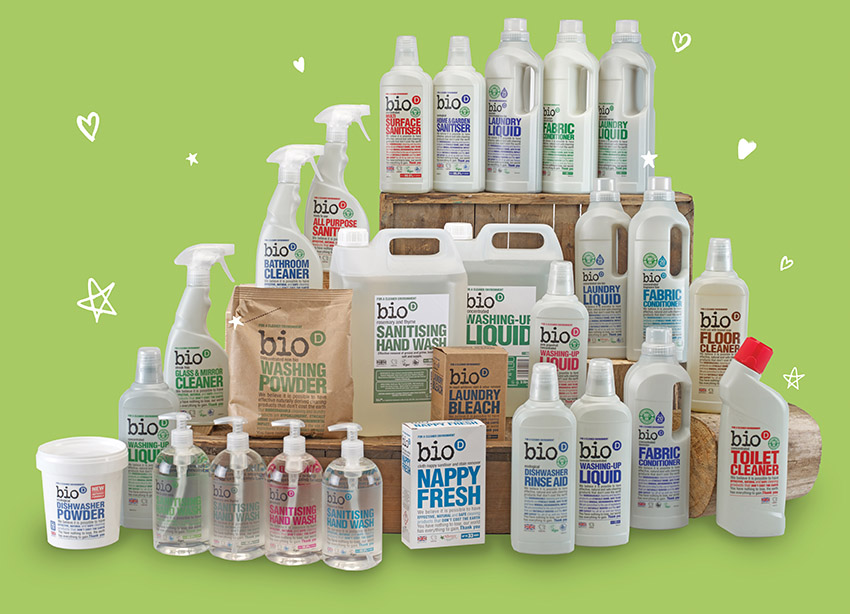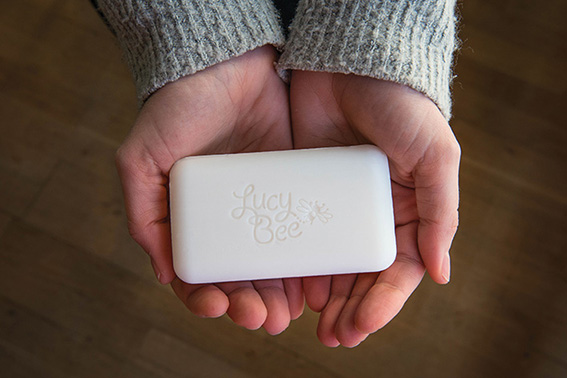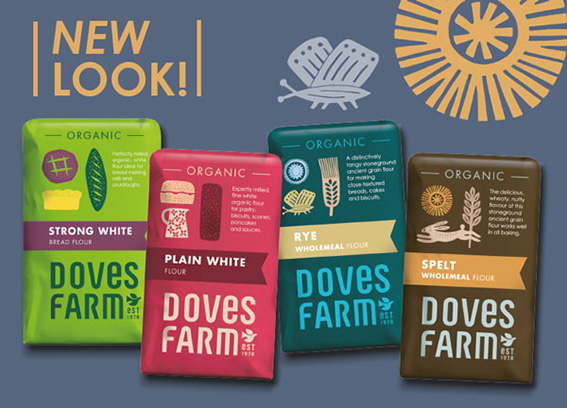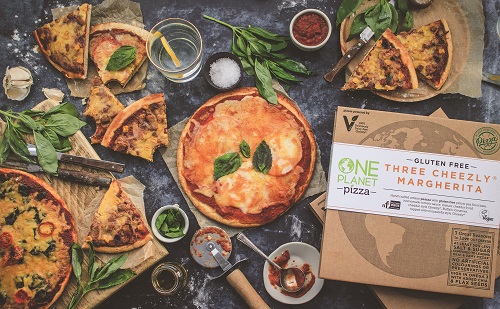Posted by admin on April 6, 2020 · Leave a Comment

Promotion
We’ve recently found ourselves in an unprecedented situation, currently there is a huge demand for packaging and products which means there may be some temporary changes.
At Bio-D, we’re committed to sustainable and environmentally friendly practices across everything we do, so we haven’t taken these decisions decision lightly.
Due to a demand in packaging, we might not be able to always use our 100% post-consumer recycled bottles. We’d like to reassure customers that we will be limiting our use of virgin plastics as much as possible. We’d also like to remind customers that this packaging is still fully recyclable through your kerbside collections.
Hand wash pumps are, understandably, also in high demand at the moment. They’re proving difficult to get hold of so we’re advising customers to save their existing hand wash pumps and re-use them where they can.
We’d like to thank our customers for their support and understanding.
Biodegradeable.biz
Posted by admin on April 6, 2020 · Leave a Comment

Promotion
Lucy Bee, the home of coconut oil, has donated thousands of its natural soap bars to charities across the UK, helping to protect against the spread of COVID-19.
Thirty-five charities from emergency services, care homes, homeless shelters and food banks will receive the soap bars, helping to support those on the front line and the most vulnerable in the community. Age UK in Manchester, London Ambulance Service and Action for Children are among those that will benefit from the soap bars.
The soaps were manufactured in partnership with the UK’s largest manufacturer of soaps, Soapworks. Lucy Bee provided all the materials for the soap base, and Soapworks turned these into soap bars free of charge. Soapworks provides employment and opportunity in an otherwise deprived area in Glasgow.
Created for charity, the soap bars are fragrance free, palm oil free, made using Lucy Bee organic coconut oil and come in a recyclable plastic wrap. Each soap bar lathers onto the skin so will last for months.
Posted by admin on April 6, 2020 · Leave a Comment

Promotion
The UK’s no.1 organic flour brand Doves Farm* is excited to introduce a striking brand refresh which it has rolled out across its range of award-winning organic flours, biscuits and baking essentials.
The revamped look is Doves Farm’s first in over five years and the contemporary new design is intended to reflect the joy many home bakers associate with baking and communicate clearly the brand’s organic credentials, whilst increasing brand stand out on shelf and online.
Vibrant, friendly and with a natural feel, the new packs are expected to appeal to a wide range of consumers, speaking not only to those looking for high quality baking ingredients made with a concern for the planet – but also a new generation of bakers, who love to share their baking creations online, and are seeking out purposeful brands with inspiring packaging.
The new look began to hit shelves in March and the launch is being supported by advertising, PR and social media activity. The change also coincides with the launch of a new product – Organic Coconut Flour. Made using the finest sustainably grown Sri Lankan coconuts, the new flour is Soil Association organic certified, Vegan Society certified, high in fibre and protein, and gluten free.
For more information contact sales@dovesfarm.co.uk or call 01488 684880.
* Kantar Worldpanel 52 w/e 21 April 2019
Posted by admin on April 4, 2020 · Leave a Comment

A new report shining a light on initiatives inspiring and influencing consumer attitudes towards biodiversity and sustainability has singled Weleda out for praise.
The Positive Luxury Predictions Report 2020 explores the loss of biodiversity, with input from thought leaders and case studies on sustainability in the luxury industry.
Weleda’s new YOU ARE NATURE campaign is highlighted as an example of how a beauty brand can connect with the consumer to inspire change. Weleda also features in a further three-page Q&A interview with Ann Driessens, the company’s Head of Global Marketing, about Weleda’s new UEBT Sourcing with Respect certification and its significance for both consumer and company.
“As a brand, Weleda wants to reconnect people with nature and celebrate that we too are nature. Those values have never been as relevant to consumers as in today’s world where we are most of the time disconnected from nature,” Driessens commented.
The new 78-page report was launched at Davos at the World Economic Forum annual meeting, Stakeholders for a Cohesive and Sustainable World.
Positive Luxury is the organisation behind the Butterfly Mark, awarded to luxury brands and businesses in recognition of their commitment to creating a positive impact on both people and planet.
In other Weleda news, the company is championing the protection of orangutans threatened with extinction. In order to help these primates and to protect local biodiversity, Weleda is joining forces with the non-profit organisaton, Borneo Orangutan Survival (BOS). The project will run for 20 months initially, supported by Weleda with a contribution of 100,000 Euros. An important aspect both for BOS and Weleda is to take account of and to support all aspects of sustainability (ecological, social and economic) with this aid project in the Mawas area.
The focal point for the BOS and Weleda project is the village of Mantangai Hulu, with around 2,000 inhabitants, south of Mawas. Plans are drawn up to enable the population to develop sustainable sources of income so that the local community can live and work in harmony with nature in an economically and legally secure manner.
As well as being a member of the RSPO, Weleda is also a member of the Forum for Sustainable Palm Oil (FONAP), an association established in 2013 to raise certification standards for sustainable palm oil still further. As of 2015, Weleda has taken a very active role in the FONAP Steering Committee.
Posted by admin on March 29, 2020 · Leave a Comment

One Planet Pizza has announced the launch of its heavily anticipated Gluten Free Three Cheezly Margherita.
The multi-award winning vegan frozen pizza company has used its new gluten free base, melty vegan cheese topping, alongside the classic homemade pizza sauce and buffalo tomatoes to create the new addition.
After months of searching for the ultimate gluten free recipe, One Planet Pizza is certain that free from customers will be delighted with the high quality, fluffy textured base the team has managed to secure. They worked with free from experts from Lab Pizza, which created a hand-stretched, artisan base.
One Planet Pizza co-founder, Joe Hill, half of the father and son team behind the Norwich-based vegan brand, commented: “We truly care about our customers and see them more as part of our team, that’s why we’ve always wanted to create a free from pizza, to make sure that nobody has to miss out on some seriously cheezy goodness! We’ve been working behind the scenes for some time now (as you could tell from following our socials) and we’re incredibly excited for everyone to taste this new pizza, which is an absolute game changer – you won’t believe it’s gluten-free!”


 Organic & Natural Business magazine
Organic & Natural Business magazine




